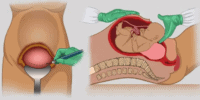Is Nutrition Crucial for Women's Wellness, and How to Eat for Health

In the journey towards optimal wellness, women must navigate the intricate maze of nutrition. Just as a skilled navigator charts a course towards a destination, women must cultivate a deep understanding of their nutritional needs and make intentional choices to nourish their bodies.
This article explores the importance of nutrition for women's wellness, providing insights into key nutrients and strategies to build a balanced and nutrient-rich diet. By incorporating healthy eating habits, women can empower themselves to serve others through their own well-being.
Key Takeaways
- Women's wellness is greatly influenced by nutrition, and it is important to prioritize a balanced diet and regular exercise.
- Women have unique nutritional needs due to hormonal changes throughout the menstrual cycle, and they are more prone to certain nutrient deficiencies such as iron and calcium.
- Hormonal fluctuations during the menstrual cycle can impact appetite, cravings, and nutrient absorption, highlighting the importance of paying attention to specific nutrients at different times of the cycle.
- Common nutrient deficiencies in women include iron, calcium, vitamin D, and folate, and it is crucial to incorporate a variety of fruits, vegetables, lean proteins, and whole grains to address these deficiencies and promote overall health.
The Importance of Nutrition for Women's Wellness
When considering the importance of nutrition for women's wellness, it is essential to prioritize a balanced diet and regular exercise. Nutrition plays a crucial role in supporting overall health, particularly for women who have unique nutritional needs due to factors such as understanding the menstrual cycle and the impact of stress on nutrition.
A well-balanced diet provides the necessary nutrients to support a woman's physical and mental well-being. It is important to consume a variety of foods from all food groups, including fruits, vegetables, whole grains, lean proteins, and healthy fats. This ensures that the body receives essential vitamins, minerals, and antioxidants that help maintain hormonal balance, support reproductive health, and protect against chronic diseases.
Additionally, regular exercise is key to women's wellness as it helps manage stress, improve mood, and boost energy levels. Engaging in physical activity also aids in maintaining a healthy weight, reducing the risk of chronic diseases, and promoting better sleep quality.
Understanding the menstrual cycle is crucial for women's wellness as it can impact nutritional needs. During different phases of the menstrual cycle, women may experience changes in appetite, cravings, and energy levels. It is important to listen to the body's cues and make appropriate dietary adjustments to support overall well-being.
Stress also has a significant impact on nutrition. When stressed, women may turn to comfort foods that are often high in sugar, unhealthy fats, and calories. This can lead to weight gain and poor nutrition. It is important to develop healthy coping mechanisms for stress, such as exercise, meditation, or seeking support from loved ones.
Understanding the Nutritional Needs of Women
Understanding the nutritional needs of women is crucial for their overall health and well-being.
Hormonal changes throughout the menstrual cycle can impact nutrient requirements, making it important to pay attention to specific nutrients at different times.
Additionally, women are more prone to certain nutrient deficiencies, such as iron and calcium, which can have significant implications for their health.
Hormonal Impact on Nutrition
The hormonal fluctuations experienced during the menstrual cycle can significantly influence the absorption and utilization of essential nutrients in women.
The menstrual cycle is a complex interplay of hormonal changes that can lead to imbalances, affecting various aspects of a woman's health, including nutrition.
Hormonal imbalances during the menstrual cycle can impact appetite, cravings, and metabolism, which in turn can affect nutrient intake and utilization.
For example, during the premenstrual phase, some women may experience increased cravings for sugar and carbohydrates, leading to potential nutrient deficiencies.
Additionally, hormonal changes can affect nutrient absorption and utilization, such as decreased iron absorption during menstruation, leading to an increased risk of iron deficiency anemia.
It is crucial for women to be mindful of their nutrition during different phases of their menstrual cycle to optimize their health and well-being.
Key Nutrient Deficiencies
Significantly, addressing key nutrient deficiencies is paramount when considering the optimal nutritional needs of women. Women are more prone to certain nutrient deficiencies due to their unique physiological needs, lifestyle factors, and reproductive health. It is crucial to identify and address these common nutrient deficiencies to ensure overall health and well-being.
Some common nutrient deficiencies in women include:
- Iron deficiency: Women are at a higher risk of iron deficiency due to menstruation and increased iron needs during pregnancy.
- Calcium deficiency: Many women fail to meet their daily calcium requirements, which can lead to weakened bones and an increased risk of osteoporosis.
- Vitamin D deficiency: Women, especially those who spend less time outdoors or have limited sun exposure, may have inadequate levels of vitamin D, which is essential for bone health.
- Folate deficiency: Folate is crucial for women of childbearing age as it helps prevent neural tube defects in babies.
Addressing these nutritional gaps through a balanced diet, supplementation when necessary, and regular check-ups can greatly contribute to women's overall wellness and vitality.
Key Nutrients for Women's Health
Adequate intake of key nutrients is essential for maintaining optimal health in women. Hormonal balance and reproductive health are two important aspects of women's wellness that can be influenced by proper nutrition.
Certain nutrients play a crucial role in supporting hormonal balance and reproductive health. For example, omega-3 fatty acids found in fatty fish and flaxseeds have been shown to reduce menstrual pain and regulate the menstrual cycle. Iron-rich foods such as lean meats, beans, and dark leafy greens are important for preventing iron deficiency anemia, which can affect fertility. Additionally, calcium and vitamin D are vital for bone health, especially during pregnancy and menopause.
Building a Balanced and Nutrient-Rich Diet
An essential step towards achieving optimal health and wellness for women is building a diet that is balanced and rich in nutrients. When it comes to meal planning, it is important to consider the following:
- Incorporate a variety of fruits and vegetables to ensure a wide range of essential vitamins and minerals.
- Include lean proteins such as fish, poultry, and legumes to support muscle growth and repair.
- Choose whole grains like brown rice and quinoa for a good source of fiber and sustained energy.
- Opt for healthy snack options like nuts, seeds, and yogurt to keep hunger at bay and provide essential nutrients.
Strategies for Overcoming Common Nutrition Challenges
How can individuals effectively address and overcome common nutrition challenges that may arise in their pursuit of a healthy diet and overall well-being?
One of the most common challenges people face is emotional or stress-related eating. Many individuals turn to food for comfort or as a way to cope with their emotions, which can lead to unhealthy eating habits and weight gain.
To overcome this challenge, individuals can practice mindful eating techniques. Mindful eating involves paying attention to the present moment while eating, including the taste, texture, and aroma of food. By being mindful, individuals can develop a better understanding of their body's hunger and fullness cues, as well as their emotional triggers for eating.
This awareness can help individuals make healthier choices and develop a more balanced relationship with food. Overall, by practicing mindful eating techniques, individuals can effectively address and overcome emotional and stress-related eating challenges, leading to a healthier diet and overall well-being.
Incorporating Healthy Eating Habits Into Your Lifestyle
One effective way to incorporate healthy eating habits into your lifestyle is by gradually increasing the amount of fruits and vegetables you consume each day. By doing so, you can provide your body with essential nutrients and antioxidants that promote overall health and well-being.
To further encourage healthy eating, consider the following tips:
- Healthy Meal Planning: Plan your meals in advance, ensuring they include a variety of fruits, vegetables, whole grains, lean proteins, and healthy fats. This will help you make nutritious choices throughout the week.
- Mindful Eating: Practice mindful eating by paying attention to your body's hunger and fullness cues. Slow down and savor each bite, being aware of the flavors and textures of your food.
- Explore New Recipes: Expand your culinary horizons by trying new recipes that incorporate different fruits and vegetables. This will keep your meals interesting and enjoyable.
- Make it a Family Affair: Involve your family members in meal planning and preparation. Encourage them to try new fruits and vegetables, making healthy eating a shared experience.
Incorporating these strategies into your daily routine will not only improve your own health but also inspire and serve others by promoting a culture of healthy eating.
Frequently Asked Questions
What Are the Recommended Daily Servings of Fruits and Vegetables for Women?
The recommended daily servings of fruits and vegetables for women vary depending on age and activity level. Consuming a balanced diet rich in fruits and vegetables provides numerous benefits for women's wellness, including improved immune function and reduced risk of chronic diseases.
Can Taking Multivitamins Replace a Healthy Diet for Women?
Taking multivitamins cannot replace a healthy diet for women. While they may provide some nutrients, they lack the necessary fiber and other beneficial compounds found in whole foods. A balanced diet remains crucial for optimal health.
Are There Any Specific Nutrients That Women Should Focus on During Pregnancy?
During pregnancy, prenatal nutrition is crucial for the health of both the mother and the developing baby. One specific nutrient that women should focus on is folate, as supplementation can help prevent birth defects and support proper fetal development.
How Does Nutrition Affect Women's Hormonal Balance?
Nutrition plays a vital role in maintaining women's hormonal balance. It impacts menstrual cycles and can help manage hormone-related conditions. A well-balanced diet rich in essential nutrients is crucial for overall women's wellness.
What Are Some Common Nutrition Challenges That Women Face During Menopause?
During menopause, women commonly face symptoms such as hot flashes, mood swings, and weight gain. These challenges can be managed through dietary changes, such as increasing calcium intake, consuming more fruits and vegetables, and reducing caffeine and alcohol consumption.








